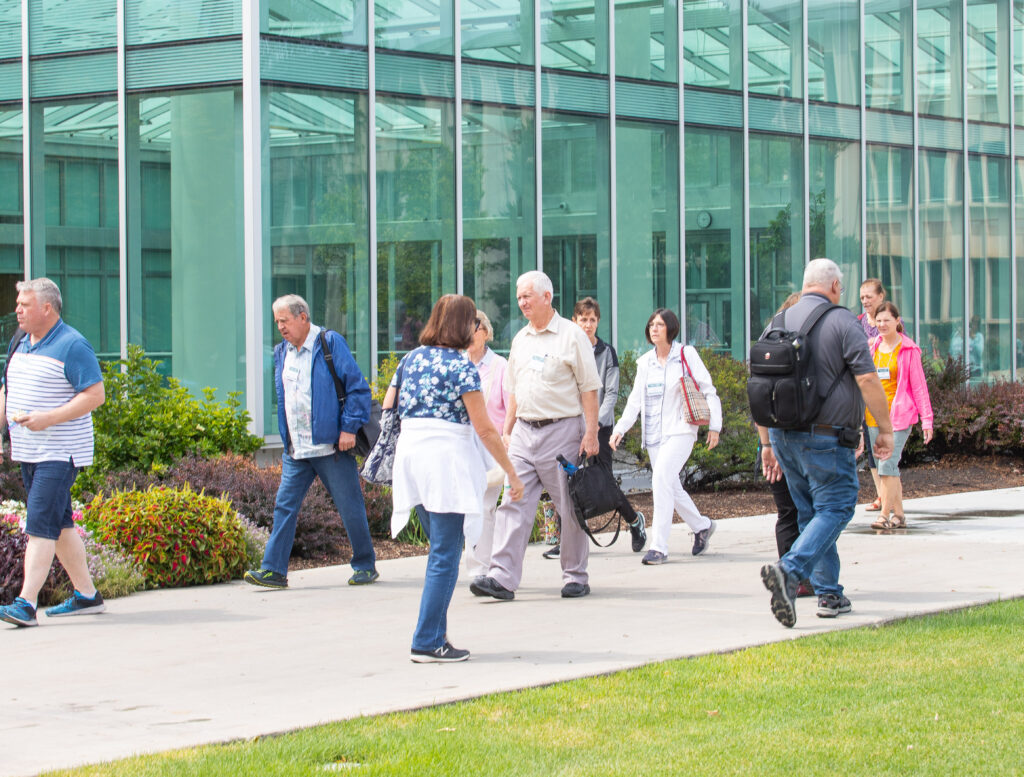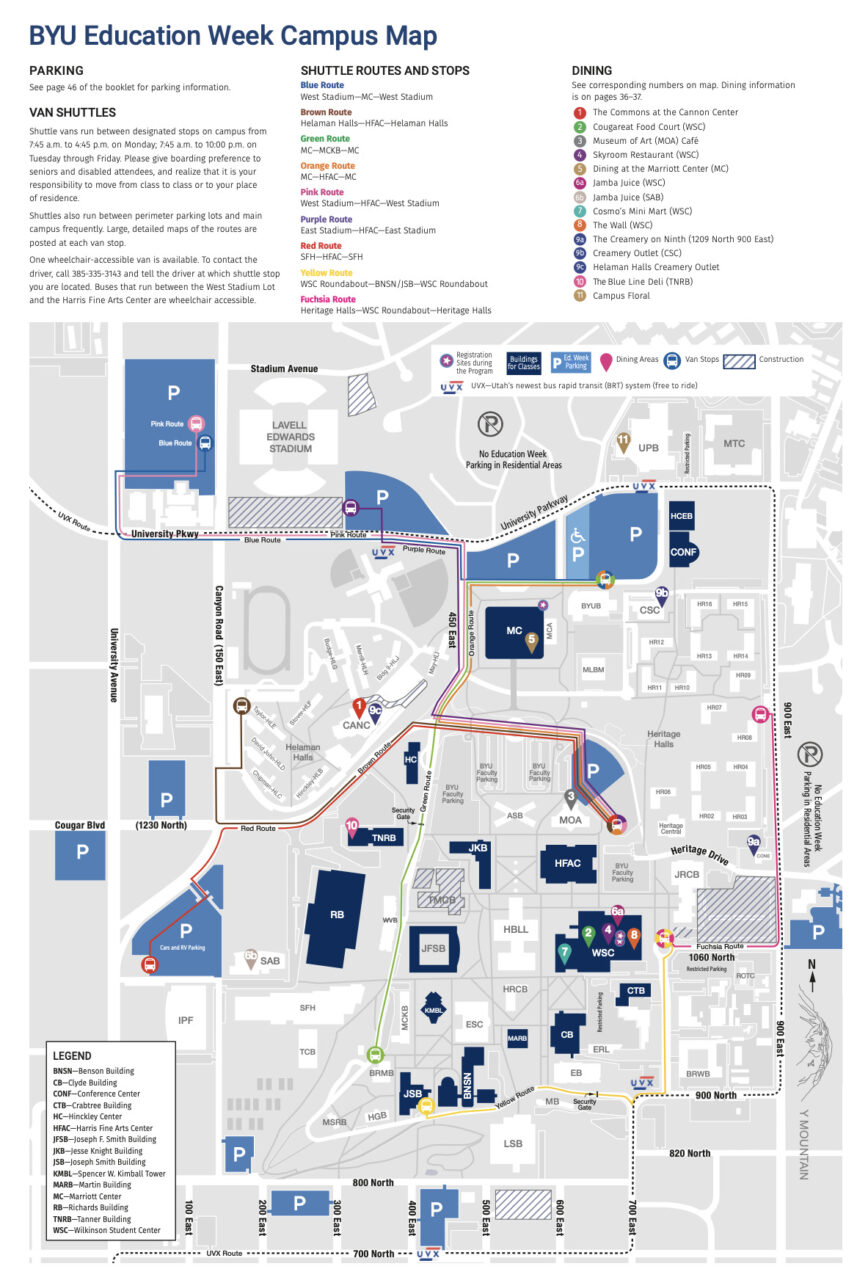
Education Week celebrates 100 years of drawing thousands of attendees to BYU campus to learn about a variety of topics every summer. The conference will go from Aug. 15-19 and it will offer just under 900 classes.
Education Week, initially called “Leadership Week,” began in January 1922 as a program focused on training and teaching people about ecclesiastical matters as well as other subjects.
In 1963, BYU decided to turn the leadership program into a conference open to everyone who had a desire to attend.
“We don’t have any big celebrations or anything that are planned, as our main focus is to offer classes,” Education Week program administrator Bruce Payne said when asked about the conference’s anniversary. “We did put some pictures in the booklet to give a flavor of the history to the people who are coming but there aren’t any big parties or celebrations, the classes are what the people are coming here for.”
Payne explained how preparations for Education Week usually begin in September following the end of the conference and when all program organizers have received feedback on the most recent session. After a thorough evaluation, they determine which presenters they want to include and what topics should be addressed for the next conference.
“We keep an eye on attendance and check whether a class is starting to wind down in a particular area,” Payne said. “Yet, we always have classes on certain topics such as temple and family history or finance.”
BYU professor and children’s book author Lori Steadman is one of this year’s Education Week presenters.
Steadman explained the way she applied to teach at Education Week and how she has been preparing for her lecture series on understanding the power of finding, writing and sharing family stories.
“I applied three years ago, and it is actually quite a lengthy process,” Steadman said. “I did have to give a very detailed outline, which had to be approved and had to follow church policies as well as be useful for people who attended the conference.”
Steadman also explained how she prepared to giver her lecture series by going to the building where she will be presenting, by practicing out loud and talking to people familiar with the topic.
“Each class is 55 minutes long, which is tricky because it’s not a class where there is a lot of interacting, and it is more of a lecture,” Steadman said. “There isn’t as much audience participation so you have to make sure you time it right.”
Among one of the novelties of this conference is the first class to be offered in a language other than English: BYU professor Mara L. Garcia’s lecture on the importance of education for the Latter-day Saint woman and her family.
“Last year, we reached out to a few presenters who could have given a class in a different language but that didn’t work out,” Payne said. “When Sister Garcia let us know she was interested in giving her presentation in Spanish, we were very excited because we want to reach out to the most people possible.”
Payne also expressed the Education Week committee’s desire to expand the classes offered to other languages but that remains as a plan for the future.
Education Week attendance is available for adults and youth ages 14 and up and tickets prices range from $22-$87.
Parking for the conference will only be available in specified lots on campus, which can be found in the following map.

Various dining locations will be available for Education Week attendees. Some of the most popular options are the Cannon Center, the Creamery on Ninth and the Cougareat located in the Wilkinson Student Center.




